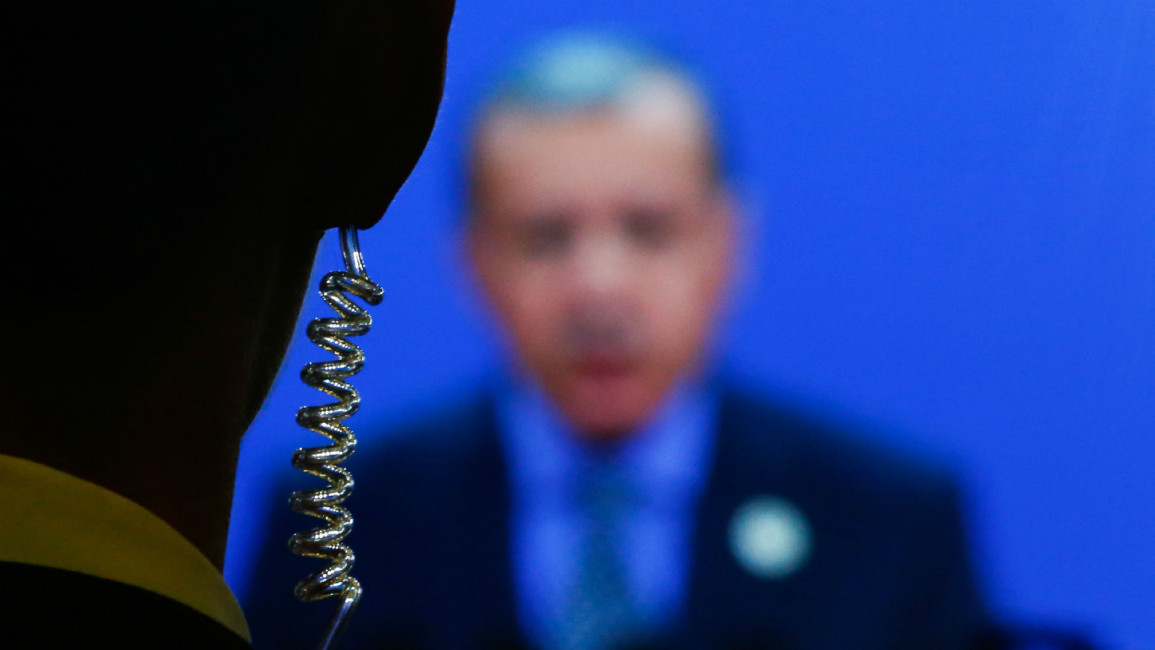Turkey probes dozens over 'insulting' earthquake social media posts
The death toll from Friday's quake in Elazig province had reached 39 people as hopes dimmed of finding more survivors amid the rubble.
The Ankara prosecutor's office is checking 50 individuals on suspicion of "spreading fear and panic" and "insulting the Turkish people, the Turkish republic and the state institutions", the Hurriyet daily said.
The suspects are accused of sharing fake images about the quake on social media.
Turkish authorities have cracked down on social media posts deemed supportive of "terrorism", prompting concern from some activists that freedom of expression was being curtailed.
Turkey has become notorious over the last years for temporarily blocking access to popular sites, including Facebook and Twitter, in the wake of major events such as mass protests or terror attacks.
Read more: Anger as Turkey lawmakers set to introduce 'marry-your-rapist' bill
In March 2014, YouTube was banned for several months in Turkey after the site was used to broadcast purported footage of a security meeting on Syria.
In the summer of 2013, severe restrictions were imposed on social media during the mass protests against the rule of President Recep Tayyip Erdogan, then premier.
Savvy internet users frequently resort to the use of VPNs to get around these bans although there have been complaints that the use of these private networks have now also started to be blocked.
The government says such measures are always temporary and needed for national security but critics see them as another restriction on civil liberties under Erdogan.
In November 2016, Turkey imposed major temporary restrictions lasting several hours on messaging service WhatsApp as well as Twitter, Facebook, YouTube and other sites following the controversial arrests of pro-Kurdish MPs.
Prime Minister Binali Yildirim then acknowledged that "from time to time for security reasons we can use such measures... These are temporary measures. Once the danger is passed, everything returns to normal."
Turkey quakes
The magnitude 6.8 quake hit on Friday evening, with its epicentre in the small lakeside town of Sivrice in Elazig province but also affected neighbouring cities and countries. Turkey lies on major fault-lines and is prone to frequent earthquakes.
Sivrice - a town with a population of about 4,000 - is situated south of Elazig city on the shores of Hazar lake - one of the most popular tourist spots in the region and the source of the Tigris river.
The lake is home to a "Sunken City", with archaeological traces dating back 4,000 years in its waters.
The tremor was felt in several parts of eastern Turkey near the Iraqi and Syrian borders, the Turkish broadcaster NTV reported, adding that neighbouring cities had mobilised rescue teams for the quake area.
Nearly 80 buildings collapsed while 645 were heavily damaged in Elazig and Malatya, the Turkish government's disaster and emergency management agency (AFAD) said in a statement.
Turkish authorities were winding up their rescue efforts on Monday.
Interior Minister Suleyman Soylu told reporters that 24,000 tents had been provided, 1,000 container shelters were being built, and funds released to repair damaged buildings.
Thirty-five of the victims died in Elazig and four in the neighbouring province of Malatya, officials said.
Health Minister Fahrettin Koca said 86 injured were still being treated in hospitals - 18 of them in intensive care units.
In 1999, a devastating 7.4 magnitude earthquake hit Izmit in western Turkey, leaving more than 17,000 people dead including about 1,000 in the country's largest city Istanbul.
In September last year, a 5.7-magnitude earthquake shook Istanbul, causing residents to flee buildings in the economic capital.
Experts have long warned a large quake could devastate the city of 15 million people, which has allowed widespread building without safety precautions.



